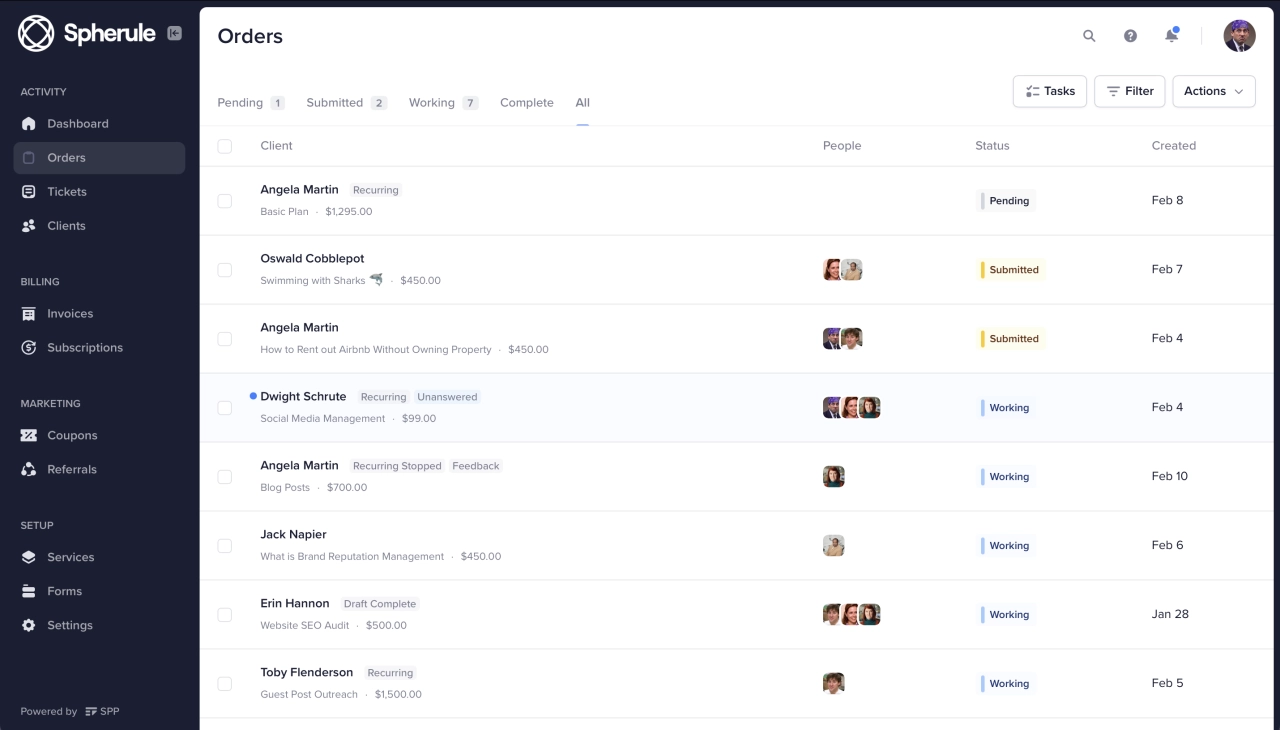- Consultants who productize successfully don’t package their entire practice—they productize the entry point, a fixed-scope diagnostic that leads into custom work.
- A $2,000–$2,500 diagnostic can lead to $20,000+ engagements when clients experience your thinking before the big commitment.
- Start with the diagnostic phase you already do for free during sales calls—that’s your gateway offer.
Most productization advice assumes you’re selling deliverables. Write 10 blog posts. Build a landing page. Run an audit with a 47-point checklist.
That works fine if you’re running a marketing agency or design shop. But consulting is different. You’re not selling output—you’re selling judgment, insight, and the ability to see what others miss.
So when someone tells you to “just productize,” you’re stuck. Package your thinking too tightly and you become a glorified checklist. Keep it too loose and you’re back to custom proposals, unpredictable revenue, and the feast-or-famine cycle you were trying to escape.
There’s a middle path. The consultants who’ve figured this out don’t productize their entire practice. They productize the entry point—a fixed-scope diagnostic that leads naturally into custom work. Lower barrier for clients to say yes. Higher-value relationships once they’re in.
This approach works best for solo consultants and small firms where the founder is still involved in sales and delivery. If you’re running a 50-person consultancy with a dedicated sales team, you’ve got different problems. But if you’re the one writing proposals, doing the work, and trying to figure out how to grow without cloning yourself—keep reading.
Let me show you how this works.
Understanding this topic involves several interconnected concepts:
Each of these concepts plays a crucial role in the overall topic.
Why standard productization advice fails consultants
The typical advice on productization goes something like this: pick a niche, define a fixed scope, set a price, repeat.
That’s fine when you’re selling execution. A logo design is a logo design. A website audit follows a template. The deliverable exists independent of who’s buying it.
Consulting doesn’t work that way. The value isn’t in the deliverable—it’s in the diagnosis. Two clients might walk in with the same symptom (revenue plateaued, team underperforming, market share slipping) and need completely different solutions. One needs a pricing overhaul. The other needs to fire their sales director.
You can’t template that. And if you try, you end up in one of two traps.
The first trap is over-packaging. You create a rigid “Strategic Growth Assessment” with 12 modules and a 40-page report. It looks professional. It’s easy to sell. But it forces every client through the same process whether they need it or not. You become a checkbox consultant—going through motions instead of solving problems.
The second trap is under-packaging. You keep everything custom because “every situation is unique.” Which is true, but now you’re back to writing proposals for every prospect, scoping from scratch, and hoping they say yes. Your close rate drops. Your pipeline becomes unpredictable. You’re selling hours again, just with fancier language.
The consultants who escape both traps do something different. They don’t productize the solution, but productize the path to the solution.
The gateway model: productize the entry
Here’s what this looks like in practice.
Mike Gammarino runs a sales consulting practice. Instead of pitching custom strategy engagements from the start, he leads with a $2,500 sales funnel audit. Fixed scope, fixed price, clear deliverable. Clients know exactly what they’re getting.
But the audit isn’t the business. It’s the door. The audit surfaces problems—conversion gaps, pipeline leaks, messaging issues—that naturally lead to implementation work. Most clients who complete the audit move into engagements worth $25,000 or more.
As Mike puts it:
We developed some products around key problems that we see our customers face. Then we use these smaller sales as stepping stones to larger projects.
 Mike Gammarino,
Blueprint Partners
Mike Gammarino,
Blueprint Partners
Danilo Kreimer, founder of the Boutique Consulting Club, ran a similar model with his $2,000 growth strategy audit. Thirty-five percent of audit clients converted to premium services worth $20,000 or more. When he asked why, clients kept saying the same thing: “The audit showed us exactly how you think and work.”
That’s the gateway model. A productized diagnostic that:
gives clients a low-risk way to experience your expertise
surfaces the real problems (which you’ll solve in phase two)
builds trust before the big commitment
creates natural momentum toward higher-value work
You’re not selling a commodity, but a first date that leads to a relationship.
This aligns with how B2B buyers actually want to engage. Gartner research shows 75% of B2B buyers prefer a rep-free experience for initial research—but they’re 1.8 times more likely to complete a high-quality deal when they combine digital tools with human expertise. The diagnostic gives them both: self-directed evaluation of your approach, plus direct access to your thinking.
What actually productizes (and what doesn’t)
Not everything in consulting can be packaged. The trick is knowing where the line is.
Works well as a gateway offer:
audits and assessments (sales funnel audit, pricing review, operational assessment)
diagnostics with a defined scope (2-week strategy sprint, 90-day roadmap)
workshops with a specific outcome (pricing workshop, positioning session)
second-opinion reviews (evaluate current vendor, assess M&A target)
These work because they have natural boundaries. Clear start, clear end, clear deliverable. The client gets something tangible. You get a chance to demonstrate how you think.
Doesn’t productize well:
open-ended strategy (“help us figure out our direction”)
ongoing advisory without structure (“be available when we need you”)
implementation that depends on client variables you can’t control
anything where the scope only becomes clear after you start
The pattern: if you can’t define done before you begin, it’s not a gateway offer. It’s custom work—which is fine, but it comes after the diagnostic, not instead of it.
One more thing. Your gateway offer should surface problems you can solve. If your $2,500 audit uncovers issues that require a completely different expertise, you’ve built a referral machine, not a business. Design the diagnostic to lead naturally into your implementation strengths.
Why this matters for your business
The case for the gateway model isn’t complicated. It comes down to three things:
Shorter sales cycles: The median B2B sales cycle runs 2.1 months (Databox benchmark, 300+ companies). A $2,500 audit with clear scope shortens this dramatically—often to a single conversation—because it removes the committee-approval friction that slows down larger commitments.
Higher conversion to real work: Danilo Kreimer saw 35% of his audit clients convert to $20,000+ engagements. That conversion rate comes from clients experiencing your thinking firsthand before committing to something bigger.
A more valuable practice: Consulting firms built entirely on relationships and custom proposals are hard to sell. The revenue walks out the door with the founder. But a repeatable gateway offer—something that generates leads and converts without you personally selling every engagement—that’s a system. Systems have value beyond the person who built them.
How to build your gateway offer
Start with the problems you solve most often. Look at your last ten engagements. What did the diagnostic phase look like? What questions did you ask? What did you need to see before you could recommend a path forward?
That diagnostic phase—the thing you probably do for free during sales calls—is your gateway offer.
Define the boundaries: What’s included, what’s not. How long it takes. What the client walks away with. A sales funnel audit might include pipeline analysis, conversion metrics, and a prioritized list of fixes—but not the implementation plan. That’s phase two.
Price it to reduce friction, not maximize margin: The gateway offer isn’t where you make your money. It’s where you earn the right to make money later. $1,500 to $5,000 is the sweet spot for most B2B consulting—high enough to signal quality, low enough that a single decision-maker can approve it without a committee.
Build in the natural next step: The audit should surface problems. Your presentation of findings should make the path forward obvious. “Here’s what we found. Here’s what it’s costing you. Here’s how we’d fix it.” If the diagnostic does its job, the implementation conversation sells itself.
Document and templatize: Create a repeatable process—intake questions, analysis framework, deliverable format. You’re not removing your judgment. You’re removing the administrative overhead so your judgment is the only variable.
Frequently asked questions
What if clients just take the audit findings and implement themselves?
Some will—and those clients were never going to hire you for implementation anyway. Most people paying $2,000–$5,000 for a diagnostic want the problem solved, not just named. Present a clear path forward and the next conversation is about how to fix it.
Should I stop doing custom consulting entirely?
No. Custom work is still where most of your revenue comes from. The gateway model just changes how you get there—a productized entry point instead of pitching big engagements cold.
How do I sell a productized offer differently than custom consulting?
You don’t have to. A $2,500 audit with clear scope and fixed price lets one decision-maker say yes without a committee. Your job becomes explaining what the audit covers and what they walk away with.
What if my consulting niche is too specialized to productize?
Specialization actually helps here. The more specific your expertise, the more predictable your clients’ problems become. Predictable problems are exactly what you need to build a repeatable diagnostic.
Can I add a productized offer if I’m already fully booked with custom work?
That’s often the best time to try it. You have leverage—test a gateway offer with new inquiries instead of turning them away. Start with one audit per month, refine the process, and see how it fits your practice.
The bottom line
Productized consulting works when you stop trying to template your expertise and instead create a low-risk entry point. Let clients experience how you think before they commit to a larger engagement.
Start with what you already do well—the diagnostic work you probably give away during sales calls. Package it. Price it. Let it do the selling for you.
The consultants who figure this out spend less time writing proposals, close more of the clients they talk to, and build practices that don’t depend entirely on their personal network. That’s not commoditization. That’s leverage.










